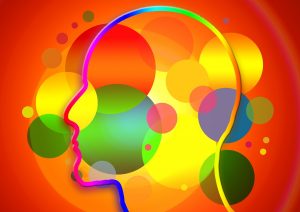Mental Health Screening
 Regular screenings in primary care and other healthcare settings enables earlier identification of mental health and substance use disorders, which translates into earlier care. Screenings should be provided to people of all ages.
Regular screenings in primary care and other healthcare settings enables earlier identification of mental health and substance use disorders, which translates into earlier care. Screenings should be provided to people of all ages.
A mental health screening is an exam of your emotional health. It helps find out if you have a mental disorder. Mental disorders are common. They affect more than half of all Americans at some point in their lives. There are many types of mental disorders. Some of the most common disorders include:
- Depression and mood disorders. These mental disorders are different than normal sadness or grief. They can cause extreme sadness, anger, and/or frustration.
- Anxiety disorders. Anxiety can cause excessive worry or fear at real or imagined situations.
- Eating disorders. These disorders cause obsessive thoughts and behaviors related to food and body image. Eating disorders may cause people to severely limit the amount of food they eat, excessively overeat (binge), or do a combination of both.
- Attention deficit hyperactivity disorder (ADHD). ADHD is one of the most common mental disorders in children. It can also continue into adulthood. People with ADHD have trouble paying attention and controlling impulsive behavior.
- Post-traumatic stress disorder (PTSD). This disorder can happen after you live through a traumatic life event, such as a war or serious accident. People with PTSD feel stressed and afraid, even long after the danger is over.
- Substance abuse and addictive disorders. These disorders involve excessive use of alcohol or drugs. People with substance abuse disorders are at risk for overdose and death.
- Bipolar disorder, formerly called manic depression. People with bipolar disorder have alternating episodes of mania (extreme highs) and depression.
- Schizophrenia and psychotic disorders. These are among the most serious psychiatric disorders. They can cause people to see, hear, and/or believe things that aren’t real.
The effects of mental disorders range from mild to severe to life-threatening. Fortunately, many people with mental disorders can be successfully treated with medicine and/or talk therapy.
Other names: mental health assessment, mental illness test, psychological evaluation, psychology test, psychiatric evaluation
What is it used for?
A mental health screening is used to help diagnose mental disorders. Your primary care provider may use a mental health screening to see if you need to go to a mental health provider. A mental health provider is a health care professional that specializes in diagnosing and treating mental health problems. If you are already seeing a mental health provider, you may get a mental health screening to help guide your treatment.
Why do I need a mental health screening?
You may need a mental health screening if you have symptoms of a mental disorder. Symptoms vary depending on the type of disorder, but common signs may include:
- Excessive worrying or fear
- Extreme sadness
- Major changes in personality, eating habits, and/or sleeping patterns
- Dramatic mood swings
- Anger, frustration, or irritability
- Fatigue and lack of energy
- Confused thinking and trouble concentrating
- Feelings of guilt or worthlessness
- Avoidance of social activities
One of the most serious signs of a mental disorder is thinking about or attempting suicide. If you are thinking about hurting yourself or about suicide, seek help right away. There are many ways to get help. You can:
- Call 911 or your local emergency room
- Call your mental health provider or other health care provider
- Reach out to a loved one or close friend
- Call a suicide hotline. In the United States, you can call the National Suicide Prevention Lifeline at 1-800-273-TALK (1-800-273-8255)
- If you are a veteran, call the Veterans Crisis Line at 1-800-273-8255 or send a text to 838255
What happens during a mental health screening?
Your primary care provider may give you a physical exam and ask you about your feelings, mood, behavior patterns, and other symptoms. Your provider may also order a blood test to find out if a physical disorder, such as thyroid disease, may be causing mental health symptoms.
During a blood test, a health care professional will take a blood sample from a vein in your arm, using a small needle. After the needle is inserted, a small amount of blood will be collected into a test tube or vial. You may feel a little sting when the needle goes in or out. This usually takes less than five minutes.
If you are being tested by a mental health provider, he or she may ask you more detailed questions about your feelings and behaviors. You may also be asked to fill out a questionnaire about these issues.
Will I need to do anything to prepare for a mental health screening?
You don’t need any special preparations for a mental health screening.
Are there any risks to screening?
There is no risk to having a physical exam or taking a questionnaire.
There is very little risk to having a blood test. You may have slight pain or bruising at the spot where the needle was put in, but most symptoms go away quickly.
What do the results mean?
If you are diagnosed with a mental disorder, it’s important to get treatment as soon as possible. Treatment may help prevent long-term suffering and disability. Your specific treatment plan will depend on the type of disorder you have and how serious it is.
Is there anything else I need to know about a mental health screening?
There are many types of providers who treat mental disorders. The most common types of mental health providers include:
- Psychiatrist, a medical doctor who specializes in mental health. Psychiatrists diagnose and treat mental health disorders. They can also prescribe medicine.
- Psychologist, a professional trained in psychology. Psychologists generally have doctoral degrees. But they do not have medical degrees. Psychologists diagnose and treat mental health disorders. They offer one-on-one counseling and/or group therapy sessions. They can’t prescribe medicine, unless they have a special license. Some psychologists work with providers who are able to prescribe medicine.
- Licensed clinical social worker (L.C.S.W.) has a master’s degree in social work with training in mental health. Some have additional degrees and training. L.C.S.W.s diagnose and provide counseling for a variety of mental health problems. They can’t prescribe medicine, but can work with providers who are able to.
- Licensed professional counselor. (L.P.C.). Most L.P.C.s have a master’s degree. But training requirements vary by state. L.P.C.s diagnose and provide counseling for a variety of mental health problems. They can’t prescribe medicine, but can work with providers who are able to.
C.S.W.s and L.P.C.s may be known by other names, including therapist, clinician, or counselor.
If you don’t know which type of mental health provider you should see, talk to your primary care provider.
Source: Medline Plus | Mental Health Screening, https://medlineplus.gov/lab-tests/mental-health-screening/ | MedlinePlus contains both copyrighted and non-copyrighted material. Medical test information pages are in the public domain.
A screening can help you determine if you or someone you care about should contact a mental health professional. Care Coordinators can arrange a free 30 minute Care Consultation so you can explore options with an expert. Call or email our Care Coordinators at 650.688.3625 or careteam@chconline.org to set up an initial Consultation appointment.





